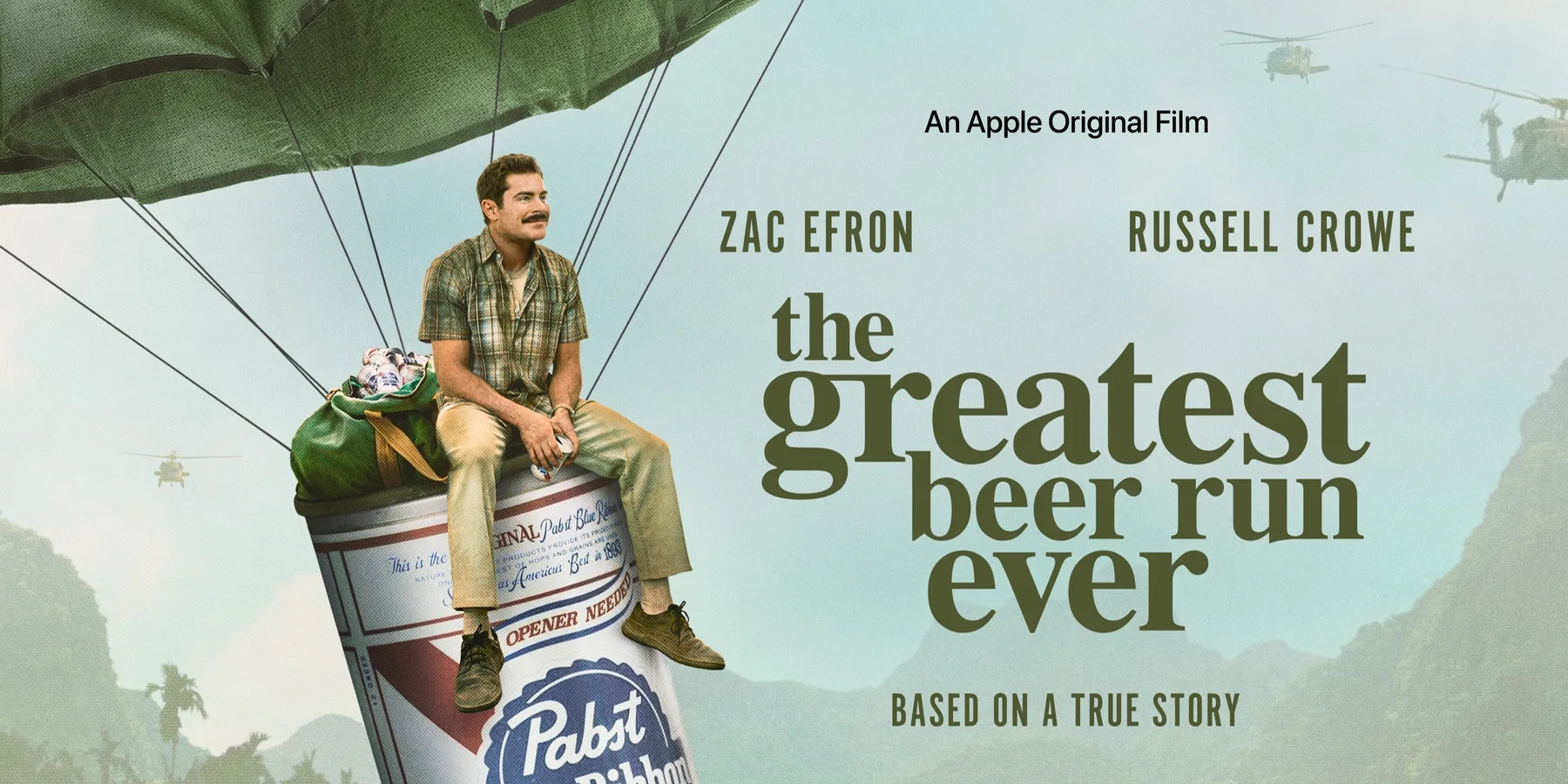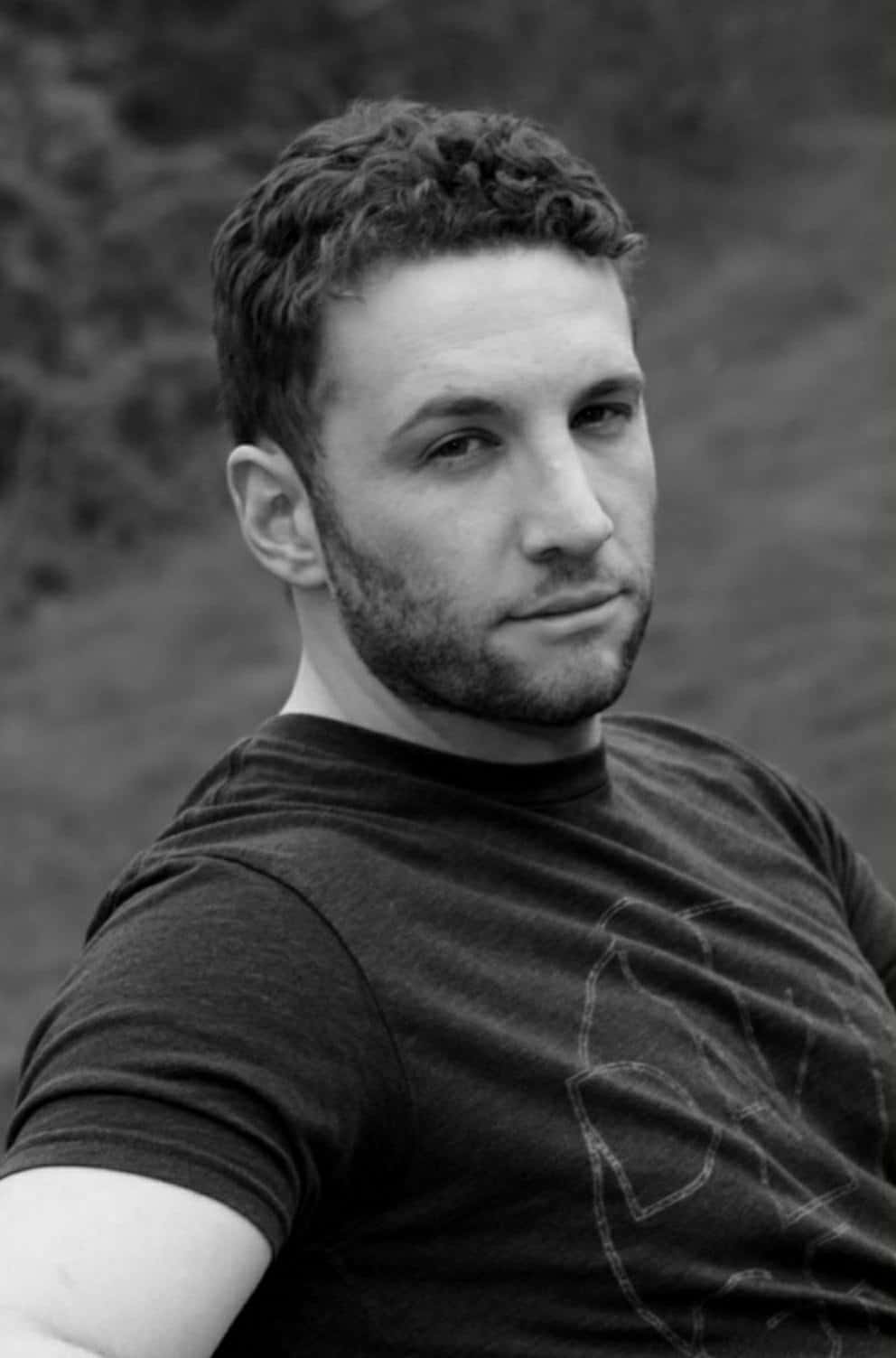Hollywood filmmakers are adept at selling us goods and services. The industry has developed product placement (or “brand integration”) into a filming technique as impressive as its cinematography and sound design. Director Peter Farrelly’s new film, The Greatest Beer Run Ever, is a compelling two-hour commercial for Pabst Blue Ribbon. Zac Efron portrays protagonist John “Chickie” Donohue, a young man who brings PBR to the guys from his neighborhood fighting in Vietnam.
Of course, a Hollywood war film can do a lot more than advertise products such as beer, soda, chocolate, pornography or cinema itself. It’s also a great format to sell us on more sinister ideological commitments. The Greatest Beer Run Ever succeeds in integrating an imperial ideology into its narrative, all while pretending to confront the audience with the horrors of the Vietnam war.
To be sure, the film’s all is lost moment is the death of an affable South Vietnamese civil servant. We witness a napalmed herd of elephants rampaging through the jungle. And Russell Crowe’s character, a tough war correspondent named Arthur Coates, makes an oblique reference to the American practice of classifying all dead Vietnamese as the enemy.
However, there is no rape in this film. Making a film about the Vietnam War that has no rape is like making a film about the Rape of Nanking that has no rape. In his book Kill Anything That Moves: The Real American War in Vietnam, Nick Turse wrote, “The army, like the marines, left a devastating trail of civilian casualties in its wake—thousands upon thousands of noncombatants beaten, wounded, raped, tortured, or killed in the years that followed.”
Turse also included, “Gang rapes were a horrifyingly common occurrence.”
Hollywood doesn’t put much rape in its Vietnam War films.
And there is very little war in The Greatest Beer Run Ever. The film’s second half uses the Tet Offensive as a convenient Saigon backdrop. Yet it avoids any mention of America’s Tet Counteroffensive that leveled entire sections of crowded cities. There’s just enough chaos, death, and malevolence for Chickie to transform from a vaguely pro-war, unreflective American to a vaguely cosmopolitan-minded individual who suspects something has gone wrong with this war.
Coates exists as limited hangout incarnate. He tells Chickie America’s politicians are lying, her “good boys” are dying, and even Vietnamese children and babies are getting killed.
These revelations are juxtaposed with Chickie’s experiences at Doc Fiddler’s bar in New York City during the first act. Bill Murray portrays the bar’s proprietor, a World War II veteran called Colonel who views the war as noble and necessary.
Vietnam was such a foreign policy and domestic political disaster that it would be strange if Chickie returned from its free fire zones only to tell the Colonel he was right all along. But the film doesn’t come anywhere close to depicting the “system of suffering,” “ubiquity of atrocity,” and “unbounded misery” that the war actually was. According to Turse, the Pentagon’s own “War Crimes Working Group files included more than 300 allegations of massacres, murders, rapes, torture, assaults, mutilations, and other atrocities that were substantiated by army investigators.”
Chickie’s most traumatic experience begins when he jumps on a helicopter that he believes is headed to Saigon. It’s actually transporting a prisoner to a military outpost. A man in civilian clothing, whom the film implies is a CIA officer, interrogates the prisoner and threatens to toss him from the helicopter. Then he does toss him from the helicopter, much to Chickie’s shock. After landing, the spook becomes suspicious of Chickie’s identity (he’s been passing as a CIA officer himself) and Chickie has to run through the jungle to escape becoming the focus of a potentially airborne interrogation.
The film is based on a true story but this incident is absent from the memoir (the word “rape” also never appears in the memoir). So, the helicopter scene was added for dramatic effect. Which is bizarre, since there aren’t readily available sources claiming the CIA ever tossed live people out of airborne helicopters.
According to Erik Villard:
“One of the most enduring yet baseless myths of the Vietnam War alleges that communist prisoners were thrown out of high-flying helicopters to induce others to talk. In my 21 years as a U.S. Army historian, I have never seen credible evidence that such an event occurred or that American military or civilian personnel participated in such practices.”
There are hundreds of documented and corroborated U.S. military atrocities that the filmmakers could have subjected Chickie to. Chickie could have watched a helicopter gunner mow down Vietnamese children. He could have witnessed a My Lai-style massacre. He could have wandered into a gang rape. There’s a lot to choose from. Yet the filmmakers represent a type of atrocity that we don’t have good footnotes for, subtly undermining any anti-war message the film might generate.
It’s also telling that the helicopter torture is carried out by a CIA officer. Hollywood often portrays the CIA as villainous, but rarely, if ever, the military. It makes one wonder if the CIA even has entertainment liaison officers (ELOs) in Hollywood or if the Pentagon’s ELOs are just better at their job. Or if the CIA intentionally cultivates an evil persona. Once you put on olive green however, you’re one of the good guys for sure.
Ultimately, the film reinforces the myth of America as global liberator and World War II as an unqualified fight between good and evil. Chickie knows World War II was a good war. He just comes to realize that mistakes were made in Vietnam. It’s certainly no reason to abandon our noble imperial calling. Just have to do better next time. And next time. And the time after that.
The United States is flirting with economic collapse and social implosion, but it still has the greatest propaganda in the world.








